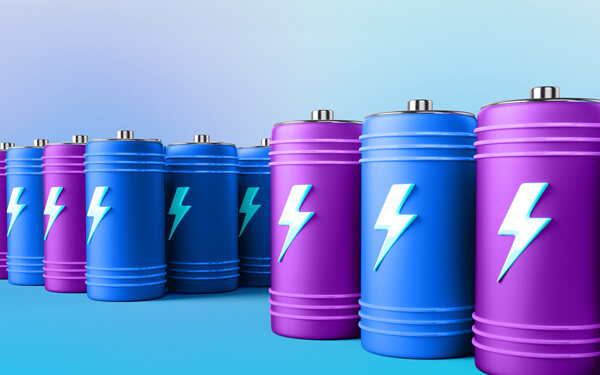DATE
3 min read
Arthur D. Little Japan and Arthur D. Little Ltd (Thailand) have been Commissioned by AOTS for the project 'Promoting Cooperation for Decarbonization in Mae Mo district, Kingdom of Thailand'

Arthur D. Little Japan, Inc. (Head Office: Minato-ku, Tokyo; Managing Partner: Yusuke Harada; hereinafter "ADL"), in collaboration with Arthur D. Little Ltd. (Thailand) have started to support the Japanese and Thai governments and companies through AOTS (The Association for Overseas Technical Cooperation and Sustainable Partnerships) to study the decarbonization of Mae Mo district, where Thailand's largest coal-fired power plant is located, with a view to further deepening the "Energy Partnership between the Ministry of Economy, Trade and Industry (METI) of Japan and the Ministry of Energy of Thailand.
In recent years, new growth and investment opportunities, global greening and decarbonization, have been positioned by the Japanese government as an important pillar of economic growth. In particular, Thailand has more than 5,700 Japanese companies operating in the country (3rd after China and the U.S., as of 2020), ranks 3rd after the U.S. and China in terms of sales by Japanese companies (as of 2018), and is 6th in terms of foreign direct investment balance (2nd after Singapore in Southeast Asia, as of 2018), making it can be said to be one of the most important countries in Southeast Asia.
The Thailand government has announced its BCG (Bio, Circular, Green) strategy, which incorporates a circular economy that makes effective use of resources, in addition to strengthening agriculture and biotechnology, where the country has strengths, for the recovery and future growth of the economy that has declined due to the effects of the COVID and other factors. In the context of Green, the country is developing a systematic energy policy and a roadmap for the realization of carbon neutrality ("CN") in 2050, utilizing advanced technologies, including hydrogen.
The Government of Japan (METI) has concluded a Memorandum of Understanding (MOU) with the Ministry of Energy of Thailand on the realization of energy partnership, and has been mutually sharing recent energy policies of both countries, especially the efforts toward CN, and exchanging views on the development of an energy transition roadmap for Thailand toward CN 2050. The two parties have been exchanging views on the development of an energy transition roadmap for Thailand and on specific technology areas such as hydrogen, fuel ammonia, CCUS(Carbon dioxide Capture, Utilization and Storage, and decarbonization technologies such as carbon recycling.
The two parties confirm the importance of creating more concrete collaborative projects between Japanese and Thai companies ,The study of decarbonization of the Mae Mo district, where Thailand's largest coal-fired power plant is located, has been defined as an important study that should be undertaken by the government and private sector as a symbolic example of Japan-Thailand cooperation projects.
ADL, in cooperation with AOTS, is planning to establish a new Sub-Committee, will support the following intellectual contribution and outreach to promote decarbonization and industrial development in the Mae Mo district by the Japanese government and Japanese companies through the Sub-Committee to be established under the Ministry of Energy of Thailand.
- Establishment of a collaboration scheme between the Thai government, EGAT, which operates the Mae Mo coal-fired power plant, and the Japanese government and related Japanese companies.
- Assess current status, formulate directional hypotheses, and create action plans for priority study areas such as renewable energy, biomass, hydrogen/ammonia, CCUS(Carbon dioxide Capture, Utilization and Storage), green industrial parks, smart agriculture, and smart communities.
- Convening and facilitating discussions with Japanese companies and organizations, which are important inputs to each agenda discussion.
- Drafting of the 'Mae Mo Green Area Roadmap (tentative name)' through the study.
- Raise awareness of Japan-Thailand cooperation projects among government agencies and industrial organizations in Thailand that have jurisdiction over incentive programs, and create an environment for concrete infrastructure investment and project creation in the future.
Through this study, the project also aims to contribute to the exploration of local development potential in Thailand based on the Thailand BCG Regional Development Strategy, and to decarbonization and energy transition cooperation in Asia based on the Asian Energy Transition Initiative (AETI) and the Asian Zero Emissions Community (AZEC).

3 min read
Arthur D. Little Japan and Arthur D. Little Ltd (Thailand) have been Commissioned by AOTS for the project 'Promoting Cooperation for Decarbonization in Mae Mo district, Kingdom of Thailand'

DATE

Arthur D. Little Japan, Inc. (Head Office: Minato-ku, Tokyo; Managing Partner: Yusuke Harada; hereinafter "ADL"), in collaboration with Arthur D. Little Ltd. (Thailand) have started to support the Japanese and Thai governments and companies through AOTS (The Association for Overseas Technical Cooperation and Sustainable Partnerships) to study the decarbonization of Mae Mo district, where Thailand's largest coal-fired power plant is located, with a view to further deepening the "Energy Partnership between the Ministry of Economy, Trade and Industry (METI) of Japan and the Ministry of Energy of Thailand.
In recent years, new growth and investment opportunities, global greening and decarbonization, have been positioned by the Japanese government as an important pillar of economic growth. In particular, Thailand has more than 5,700 Japanese companies operating in the country (3rd after China and the U.S., as of 2020), ranks 3rd after the U.S. and China in terms of sales by Japanese companies (as of 2018), and is 6th in terms of foreign direct investment balance (2nd after Singapore in Southeast Asia, as of 2018), making it can be said to be one of the most important countries in Southeast Asia.
The Thailand government has announced its BCG (Bio, Circular, Green) strategy, which incorporates a circular economy that makes effective use of resources, in addition to strengthening agriculture and biotechnology, where the country has strengths, for the recovery and future growth of the economy that has declined due to the effects of the COVID and other factors. In the context of Green, the country is developing a systematic energy policy and a roadmap for the realization of carbon neutrality ("CN") in 2050, utilizing advanced technologies, including hydrogen.
The Government of Japan (METI) has concluded a Memorandum of Understanding (MOU) with the Ministry of Energy of Thailand on the realization of energy partnership, and has been mutually sharing recent energy policies of both countries, especially the efforts toward CN, and exchanging views on the development of an energy transition roadmap for Thailand toward CN 2050. The two parties have been exchanging views on the development of an energy transition roadmap for Thailand and on specific technology areas such as hydrogen, fuel ammonia, CCUS(Carbon dioxide Capture, Utilization and Storage, and decarbonization technologies such as carbon recycling.
The two parties confirm the importance of creating more concrete collaborative projects between Japanese and Thai companies ,The study of decarbonization of the Mae Mo district, where Thailand's largest coal-fired power plant is located, has been defined as an important study that should be undertaken by the government and private sector as a symbolic example of Japan-Thailand cooperation projects.
ADL, in cooperation with AOTS, is planning to establish a new Sub-Committee, will support the following intellectual contribution and outreach to promote decarbonization and industrial development in the Mae Mo district by the Japanese government and Japanese companies through the Sub-Committee to be established under the Ministry of Energy of Thailand.
- Establishment of a collaboration scheme between the Thai government, EGAT, which operates the Mae Mo coal-fired power plant, and the Japanese government and related Japanese companies.
- Assess current status, formulate directional hypotheses, and create action plans for priority study areas such as renewable energy, biomass, hydrogen/ammonia, CCUS(Carbon dioxide Capture, Utilization and Storage), green industrial parks, smart agriculture, and smart communities.
- Convening and facilitating discussions with Japanese companies and organizations, which are important inputs to each agenda discussion.
- Drafting of the 'Mae Mo Green Area Roadmap (tentative name)' through the study.
- Raise awareness of Japan-Thailand cooperation projects among government agencies and industrial organizations in Thailand that have jurisdiction over incentive programs, and create an environment for concrete infrastructure investment and project creation in the future.
Through this study, the project also aims to contribute to the exploration of local development potential in Thailand based on the Thailand BCG Regional Development Strategy, and to decarbonization and energy transition cooperation in Asia based on the Asian Energy Transition Initiative (AETI) and the Asian Zero Emissions Community (AZEC).



